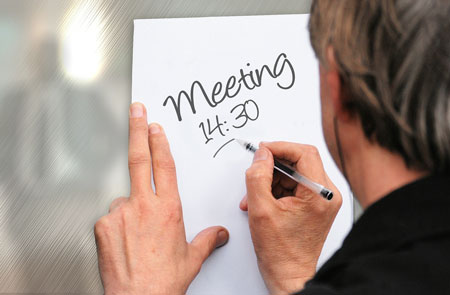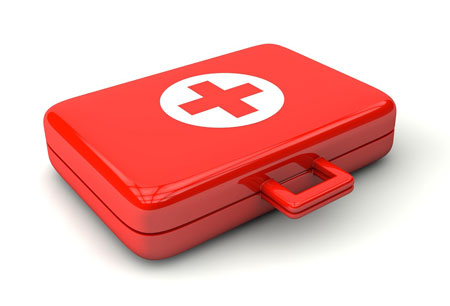Leadership Tips
- Enlightening
- Informative
- Thought-provoking
- Scientifically researched and data-driven
- Pragmatic and useful
- Pertinent and impactful
Leadership Tips
Hiring
Employee Development
Leadership Development
Motivation
Employee Well-being
ARCH Profile Blog
Bad Hire Calculator
Press Releases
Employee Well-being

|
Sources of Stress at Work
Most employees go into work with the intention of doing the best job they can. As a manager, your goal is to create an environment in which employees can thrive so that they can provide the best work or service possible. Here are 5 common workplace stressors that employees face on a regular basis: |

|
Workplace Bullying
Workplace bullying, like schoolyard bullying, occurs when one or more individuals use persistent aggressive or unfair behavior against a peer. Workplace bullying can include such tactics as verbal, nonverbal, psychological, and physical abuse, and humiliation. Be on the lookout for the following behaviors: |

|
The best offense is a good defense! Healthy coping mechanisms
Theorist George Eman Valliant proposed four categories of coping mechanisms, ranging from unhealthy or immature, to healthy and mature. When it comes to dealing with stress, there is one crucial point to keep in mind - it's not the stressor that matters, it's how you respond to it. Here are some healthy strategies: |

|
Under Pressure - Coping with Workplace Stress
If we accept that stress is simply a fact of life, then how can we best cope with it? As stress accumulates, how do we resist the urge to curl up in a fetal position and give up, or hold our tongue as an employee, client or colleague does a masterful job of pushing every one of our buttons? Fortunately, there are methods of reducing or coping with workplace stress that both companies and individuals can adopt. |

|
Snuffing Out Burnout
Burnout can turn the best employees into a shell of their former selves, too tired to care about what happens to their job, their clients, their projects, or themselves. And long before the body shuts down, a person with burnout will have already"signed o?" on a mental and emotional level. |

|
How to help a distressed employee
Not all employees are comfortable talking to their managers, let alone telling them that they are feeling stressed. This is why it's important for you as a manager to create an atmosphere in which your staff will be at ease coming to you for help. Here is a quick guide for managers on how to handle a stressed-out employee. |

|
The Stress Response: Fight, flight, freeze, or have gas
Much like activating a complex computer program, your body's response to stress sets multiple functions into motion. All of these sensations are a result of not one, not two, but three over-arching stress responses in your body. These include your physiological response, emotional response, and cognitive response. So if you feel like a mess when under stress, there are three highly complex reasons why! |

|
How management plays a role in employee health
These days, companies understand the value of human capital but many still fail to grasp the importance of employee well-being. If you don't have an Employee Assistance Program in place, have yet to implement stress reduction initiatives at work, or are oblivious to signs of burnout, you are risking the well-being of your staff and your company. |

|
COSA (Coping Skills Assessment)
Coping strategies are typically categorized into two categories: Adaptive and Maladaptive. In 1966 (and then in 1984, with the help of Susan Folkman) Richard Lazarus further expanded on the concept of "adaptive" and "maladaptive" by breaking down the latter into two categories: Emotion-focused and Problem-focused. Lazarus believed that it's not the stressor that matters as much as the resources you use to deal with it. |

|
The Consequences of Stress: A mental and physical toxin
Chronic stress is bad for your health. Some stress-related ailments are rather obvious, like stomach ulcers, headaches, or sleep problems. The sobering truth, however, is that stress doesn't just cause ailments, it can also worsen existing health issues. From head to toe, inside and out, stress can lead to or aggravate a plethora of health problems, like the following: |

|
Why employee health is your true wealth
Managers who see stress as an employee problem are not seeing the big picture. As a manager, you may not have power over an employee's level of resilience, but you can help develop it. The type of coping mechanism employees choose to use may be outside of your control, but you can offer to teach them healthy alternatives. |

|
Misconceptions that result in unnecessary stress
As a manager, you probably have an image in mind of your ideal employee. Someone who is hard-working, dedicated, not opposed to putting in extra hours, and who follows orders. The problem is that there are some traits and skills that can appear to be a strength, but are actually a liability, resulting in a lot of stress for the employee. |

|
Sticking your head in the sand: Unhealthy defensive mechanisms against stress
When it comes to stress, sometimes the best offense is a good defense. The techniques we use to deal with stress are significantly shaped by our personality and life experiences, but they are not necessarily set in stone: New coping strategies can be learned. People who are psychologically healthy are more likely to use different types of coping strategies throughout their lifetime. |

|
Quick tension-busters: Your stress first aid kit
We may not see the lesson when we're in the midst of experiencing something stressful, but when we look back, we can see the benefits of going through the hardship - if only just to learn how to avoid going through it again. Check out our stress relief go-to guide, with useful tips and exercises. |

|
Techniques to help you deal with the physical impact of stress
Not all stressors are avoidable, but their influence can be buffered by adopting healthy coping strategies. Coping skills are like any other skill: The more you practice them, the more effective they will be. Dealing effectively with stress is a four-step process: Recognize the signs of stress, identify the source, evaluate its impact, and decide on a course of action. |

|
Developing stress-fighting strengths means knowing your weaknesses
We all have a stress tolerance threshold. This threshold is based on past experience, the type of stressor you are dealing with as well as its intensity, your perception of the stressor, and the coping skills you have readily available in your arsenal (if any). There are, however, certain factors that can make a person more vulnerable to stress. |

|
The Stress Response: Fight, flight, freeze, or have gas
When you sense danger, your body's sympathetic nervous system and neuroendocrine system are activated. These stress hormones regulate a number of physiological functions that put your body on alert, getting it ready to spring into action in order to deal with the perceived threat. This is your instinctual "fight or flight" response, which generally takes the following route: |

|
The different types of stress
It's important to make a clear distinction between "stressor" and "stress. A stressor is a stimulus that can either be viewed as good or bad. Stress is our response to this stimulus. The factor that determines our reaction to the stressor is our perception. Here is a breakdown of the different types of stress we endure in our day-to-day lives. |
© 2024 Psychtests AIM Inc. All Rights Reserved